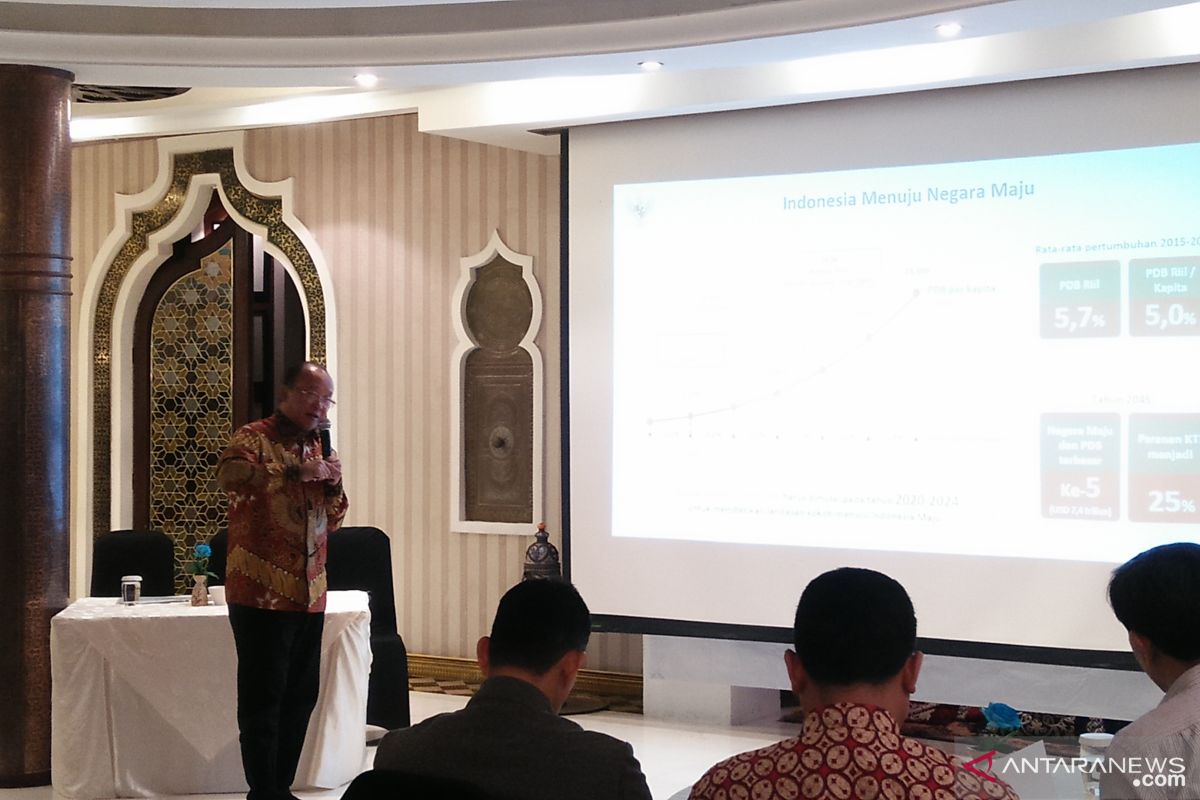The formula of growth is the function of consumption, government investment, (private) investment, exports, and imports.Jakarta (ANTARA) - The National Development Planning Ministry/National Development Planning Agency (Bappenas) highlighted numerous strategies to accomplish the average national economic growth of six percent in the National Medium-Term Development Plan 2020-2024.
"The formula of growth is the function of consumption, government investment, (private) investment, exports, and imports," Bappenas Deputy for Maritime Affairs and Natural Resources Arifin Rudiyanto stated at a media briefing in Jakarta on Sunday night.
The manufacturing sector still possesses development potential since it holds high added value by employing advanced technology and making large investment, he remarked.
The other strategy prioritizes improving the investment climate by simplifying investment regulations and procedures, particularly in regions, and directing investment to industrial estates and special economic zones (KEK), he noted.
Related news: Industrial zones to function as economic growth drivers
Related news: Minister encourages development of industrial zones to drive growth
To offer stimuli to the Indonesian economy, the fiscal policy will be made looser and pro-investment, especially in the manufacturing sector, he stated.
To bring about an improvement in the country's current account deficit, the government will boost the tourism sector that is expected to generate more foreign exchange earnings for the state.
Furthermore, the government will develop more products as substitutes for imported goods, he noted.
On the production side, the government will encourage industrialization by developing innovations and conducting transfer of technology to create new jobs and strengthen the domestic economy, he remarked.
"Ministries and non-ministerial government institutions must ensure that everything agreed upon in the medium-term national development plan can be realized well," he stated.
The strategies are outlined to serve as precautionary measures against global economic challenges that have the potential to continue in the next five years, he noted.
The global challenges encompass the protectionist trade policies imposed by other countries, China's economic slowdown, geopolitical risks, economic downturn in the European Union zone, and potential crisis in Latin America, he pointed out.
Related news: WB slashes Indonesia's economic growth forecast for 2019
Related news: ADB's 2019 economic outlook for Indonesia maintained at 5.1 percent
Translator: Dewa Ketut Sudiarta Wiguna/Suh
Editor: Yuni Arisandy Sinaga
Copyright © ANTARA 2019












